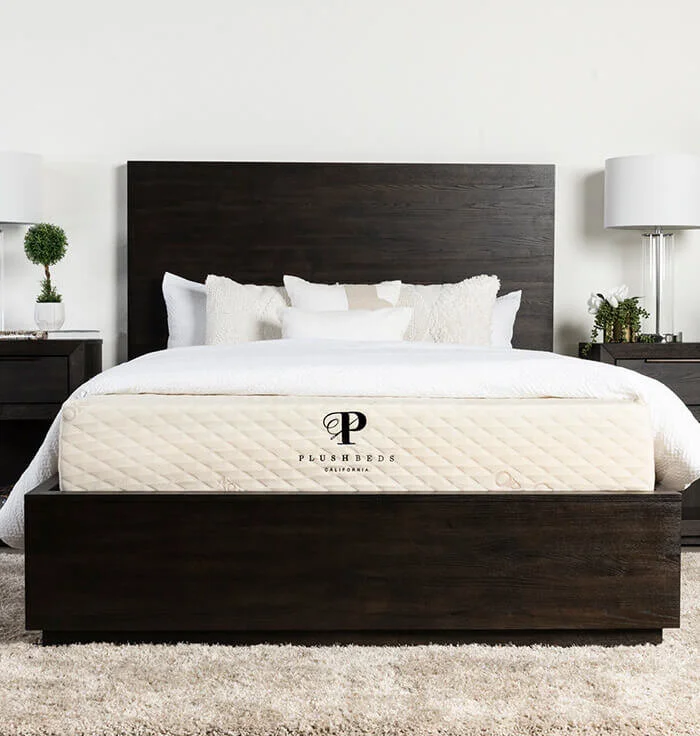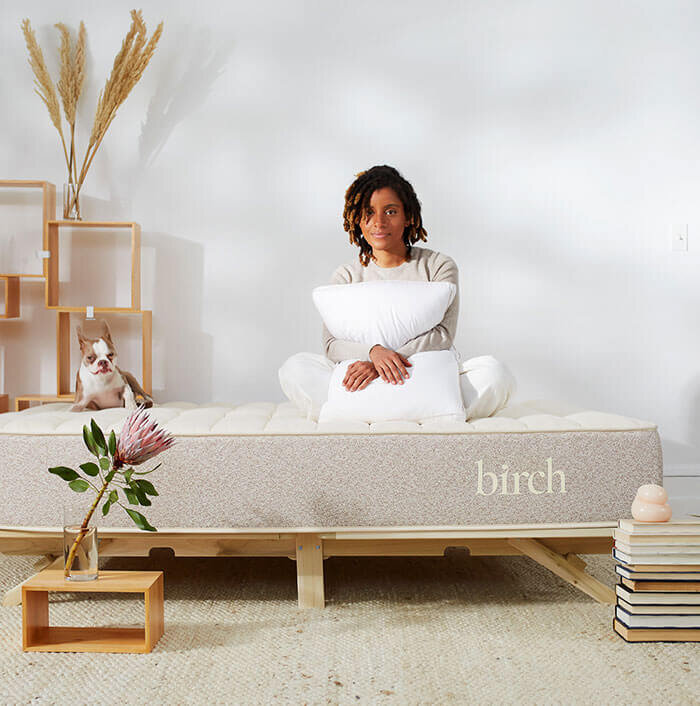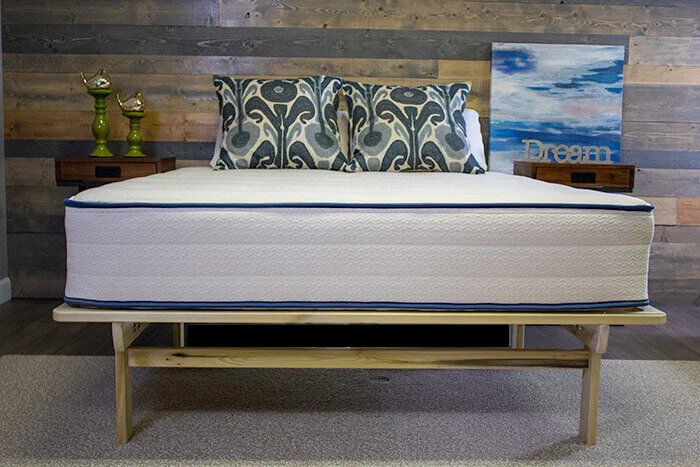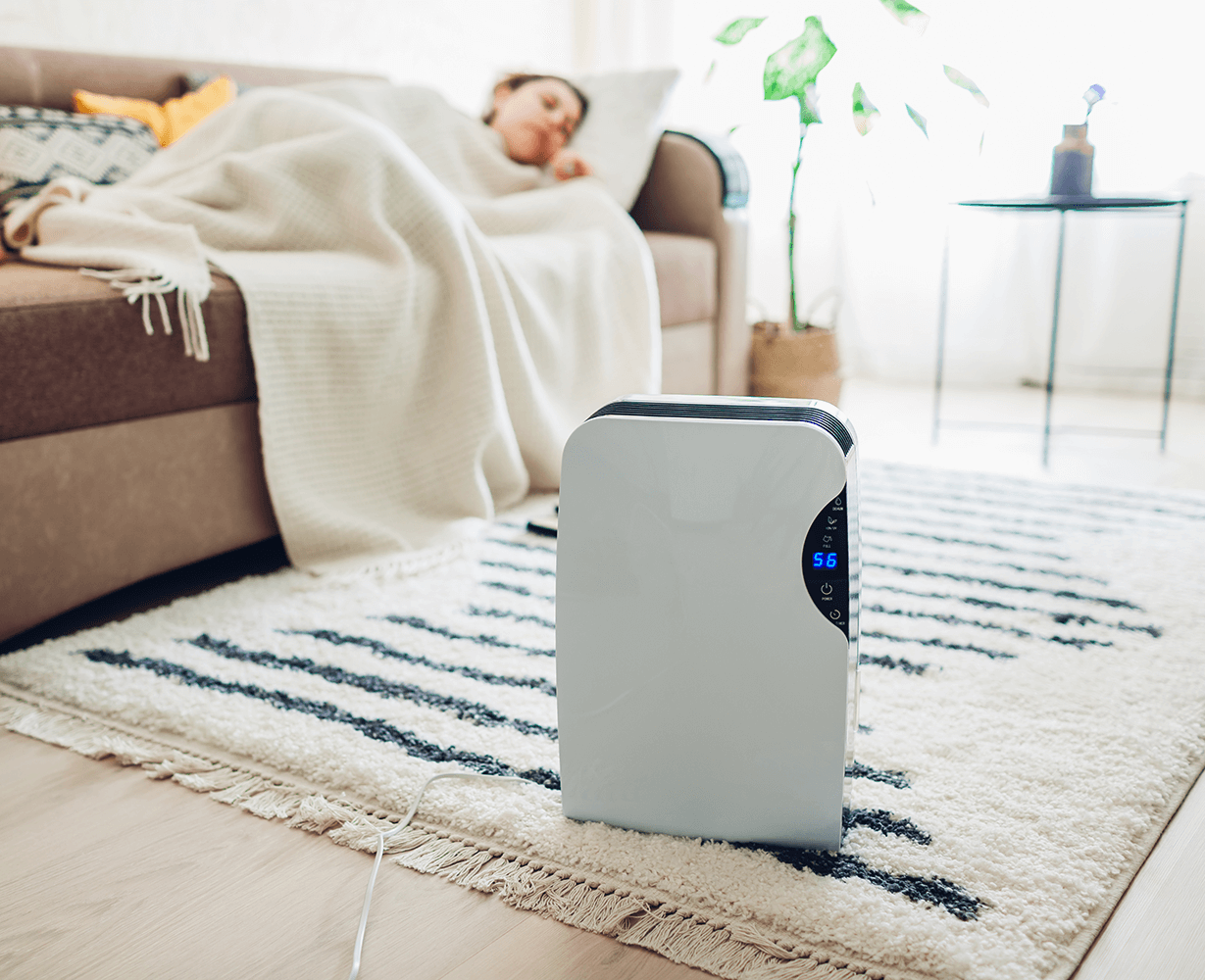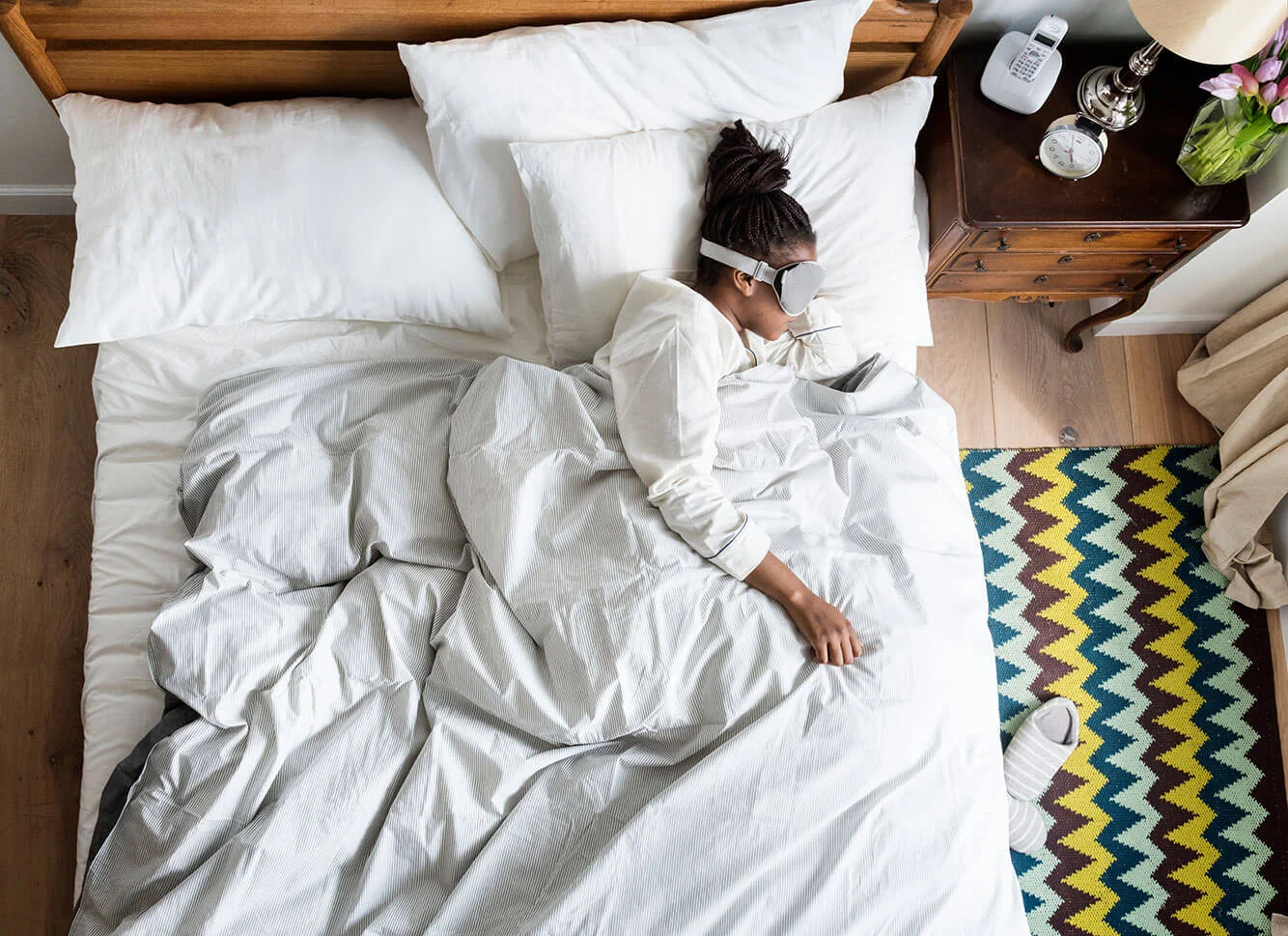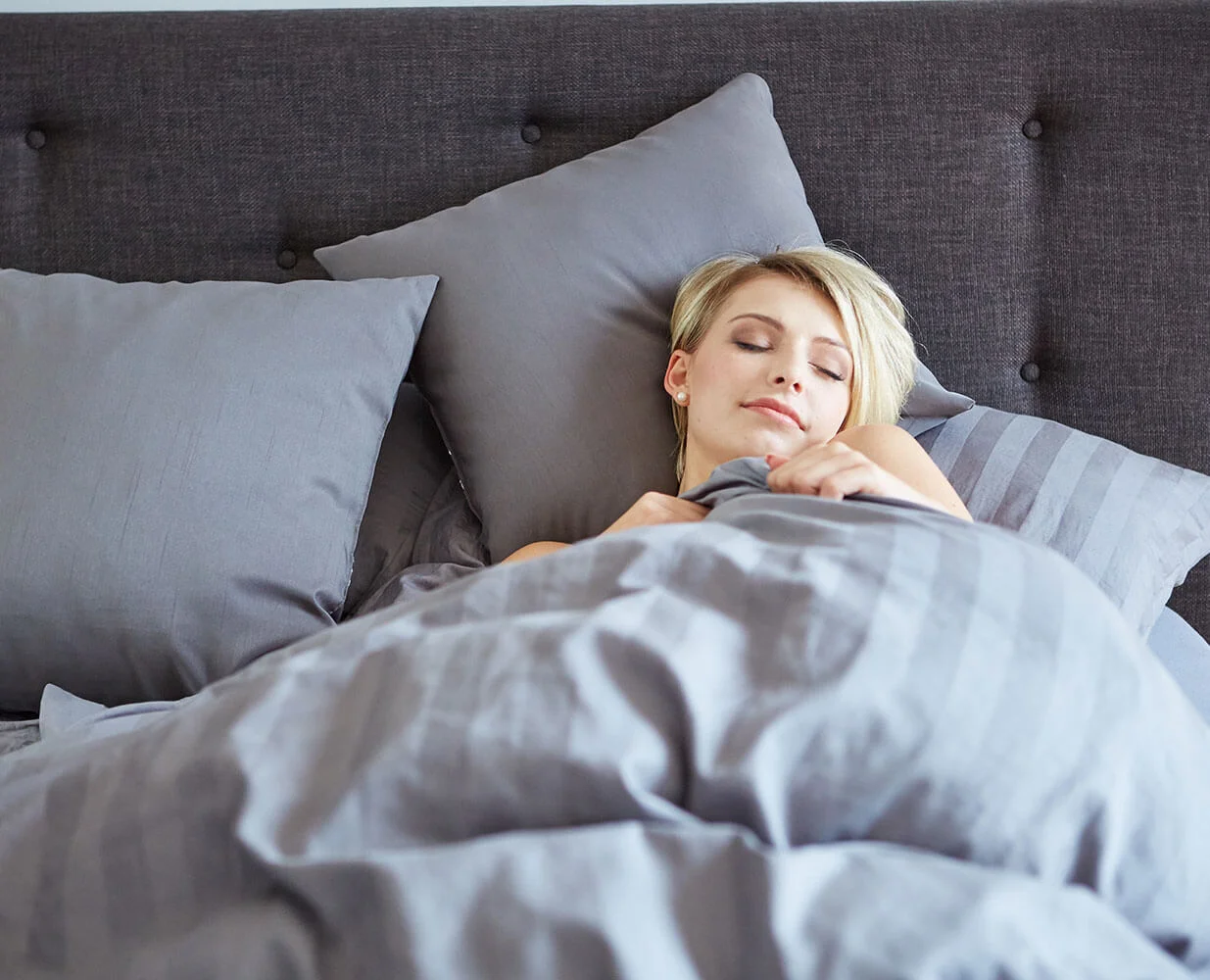Pros and Cons With Sleeping With A Fan At Night
Whether it’s to prevent overheating during or sleep or for the benefit for white noise throughout the night, many people choose to sleep with a fan. However, when the temperature goes up in the warmer months, a slew of articles come out each year saying that sleeping with a fan on is dangerous or unhealthy. So, what’s the truth?
The reality is that there are positives and negatives that come with sleeping with a fan. Take a look at the pros and cons to help make the decision of whether this sleeping setup will work for you.
The Bad
Benefits of sleeping with a fan
There are some potential drawbacks to sleeping with a fan. While turning on a fan isn’t necessarily unhealthy, it can create some problems that will actually make you less comfortable in the morning.
Air circulation is a common reason for wanting to keep a fan on at night. Unfortunately, that’s also the top reason that sleeping with a fan is not recommended. Along with circulating air, a fan can circulate any particles in the air. This can happen if your fan has been unused for some time, causing the blades to collect dust.
This can be especially problematic for those with allergies, including hay fever. Keeping fan blades clean can help cut down on circulating dust particles.
Negatives of sleeping with a fan
Along with circulating dust, the air movement from a fan can cause moisture to evaporate in your space. When the air evaporates in your throat and nasal passages, it can cause them to feel dried out. For the same reason, the air circulation can cause your skin to feel dried out and can make eyes irritated.
This can be a problem especially for those who don’t take their contact lenses out before bed. Muscle cramping is also a potential problem associated with sleeping with a fan on. In these cases, the cool air being circulated in the room at night can cause muscles to tighten, causing a cramping feeling.
If you sleep with a fan directed toward your face, it’s likely that you’ve noticed a stiff neck when you wake up in the morning.
The Good
Best mattress with a fan
While there are some drawbacks to sleeping with a fan on, it might be unfair to say that this is unhealthy. Many people find that sleeping with a fan helps them to fall asleep more easily and improves their quality of sleep through the night. These are some of the reasons to use a fan while sleeping.
First up, keeping cool air circulating throughout the bedroom at night will help to regulate body temperature. If you tend to feel overheated at night or wake up feeling sweaty, a fan can help to correct the problem and keep you comfortable.
Keep air circulating will also help to eliminate the stuffy feeling that is common in bedrooms. Running a fan can help the room feel fresh, clean, and comfortable.
Mattress and fan benefits
A fan will create white noise. White noise is a combination of sound frequencies that creates a gentle humming sound which many people find so relaxing that it can help them to fall asleep. While there are many white noise machines like the LectroSound White Noise Machine, a fan is an affordable alternative that also provides light background noise that can promote sleep naturally.
Using a fan is a cost effective solution to help many people fall asleep easier at night. "I am a true believer of white noise," psychiatrist David Neubauer, associate director of the Johns Hopkins Hospital Sleep Disorders Center said in an article for Very Well Health. "
They provide something of a kind of "sound cocoon," which can be very soothing. When it’s completely quiet, people with insomnia focus more closely on small noises, which can interfere with their ability to get to sleep."
Recommended Tips If You Sleep with a Fan On
Recommended Tips If You Sleep with a Fan On
If you’re looking for the benefits of sleeping with a fan on but you want to avoid some of the potential negatives, there are some steps you can take. With these tips, you can enjoy a peaceful night of sleep and reduce the likelihood of waking up feeling sore, stuff, or stuffy.
Start by placing your fan a safe distance away from your body. Avoid pointing the fan directly toward your face, which can lead to dry eyes or a sore throat.
If possible, choose a fan with an oscillating feature to keep the air moving throughout the room, rather than being directed in one spot. The Air-Circulator 3 Speed Small Room Floor Fan is an inexpensive and simple fan with this feature that will work in rooms of any size.
Sleep with a Fan
To address the problem of circulating dirt and dust particles through the air at night, you might also consider adding an air filter to your room. An air filter will trap dust, pet hair, smoke, fumes, and odors, giving you non toxic conditions that will make it easier to sleep at night. Air filters like the Germ Guardian True HEPA Filter create a more organic environment with less pollutants so you’ll breathe easier while sleeping with a fan on.
If you regularly sleep with a fan and notice that you wake up with your nasal passage feeling dried out, there are solutions that can help remedy the situation naturally. Try a saline solution to provide relief from symptoms. Nasal irrigation is easy and natural.
All it involves is pouring a saline solution into one nostril, allowing it to move through your nasal passages to clean out any allergens that may be trapped.
Who Should Sleep with a Fan?
Who Should Sleep with a Fan
Anyone who gets too warm while sleeping will benefit from using a fan at night to keep cool. Some will argue that opening windows in the bedroom should be a natural alternative for keeping cool. However, in areas where temperatures are too hot or too cold, opening a window might not be an option that allows for temperature regulating.
Those who have bedrooms that feel stuffy will also benefit from using a fan. Again, opening windows can work well for circulating air naturally, but this isn’t always an option.
Turning on a fan will allow for regulating air circulation, with the added benefit of white noise. If you have a partner who snores in their sleep, live in an area with outside noise that interrupts your sleep, or you prefer to have some background noise rather than a completely silent room, a fan is a great affordable option.
Sleep Peacefully At Night With The Right Fan To Keep You Cool
The only individuals that should be warned against using a fan at night are those who could see their health suffer as a result. If allergies or asthma are flaring up and the tips above aren’t correcting the problem, sleeping with a fan on could be the problem.
For most people, there is no danger in sleeping with a fan on at night. Choosing the right fan, keeping the room clean, and keeping moisture in the air can create a more comfortable and serene environment to help you sleep peacefully all night.
Jessica Lauren is Founder, contributing Author and Owner of Citrus Sleep. Citrus Sleep is an online publication that highlights brands, sleep products, women’s fashion, subscription services and ideas creating positive social change and promoting a healthy lifestyle. After spending nearly a decade working in PR and marketing for several brands and startups, Jessica knows what truly drives conversions, sold-out launches and guest posts.
Follow Jessica at @jessicalaurencs | Jessica Lauren



